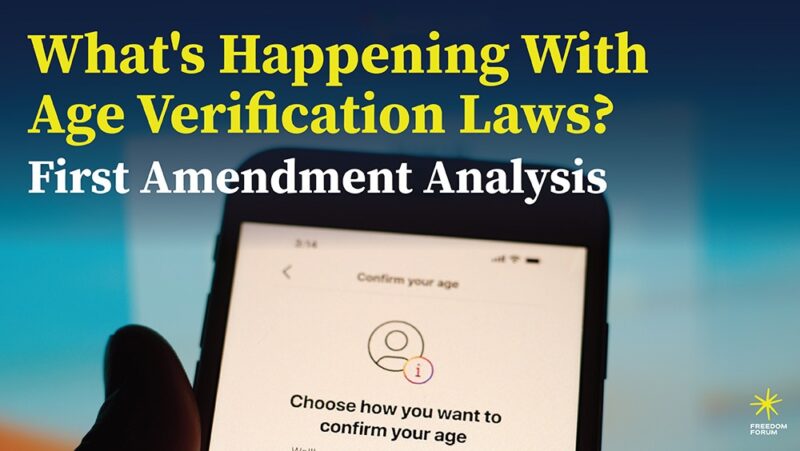Controversial Social Media Posts by Public School Employees Raise Interesting Free-Speech Questions

Public school principals, teachers and other employees must realize that controversial social media posts may lead to discipline and ultimately no First Amendment protection for their inflammatory comments. Public employees retain rights as citizens to comment on matters of public importance, but those rights are balanced against school districts’ interests in avoiding disruption of their operations.
With the recent protests against police brutality and institutional racism occurring across the country, some public employees have chosen to voice derogatory comments toward protestors and Black Lives Matter. Consider the following incidents that have taken place in June 2020:
- A Ladson Elementary School teaching interventionist in Charleston County, South Carolina, was placed on administrative leave after posting offensive comments about Black Lives Matter;
- A teacher at Palatine High School in Illinois made a controversial Facebook post critical of Black Lives Matter that led to an investigation and retirement by the teacher;
- A Staten Island, N.Y., assistant principal has been reported to the Department of Education for allegedly posting racist memes and comments about “the privilege” of being on public assistance;
- An assistant baseball coach at Battlefield High School in Prince William County, Virginia, lost his job after a Facebook post stated that he would put a knee on George Floyd too.
Many assume they have free-speech protections for off-duty speech that they do not make as public employees. It is true that public employees do not forfeit all of their First Amendment, free-speech rights simply because they work for a governmental entity.
No less an authority than the U.S. Supreme Court established that principle in a decision that still serves as the lodestar for evaluating many public employee, free-speech controversies.
A Famous Supreme Court Precedent for Public Employees
In Pickering v. Board of Education (1968), the U.S. Supreme Court ruled that Illinois public school teacher Marvin Pickering had a First Amendment right to write a letter to the editor published in the local newspaper that was highly critical of the school board. Pickering had criticized the school board for paying too much on athletics at the expense of academics. “To sod football fields on borrowed money and then not be able to pay teachers’ salaries is getting the cart before the horse,” he wrote.
School district officials contended that Pickering’s letter was detrimental to the operation of the school and contained some false statements. They fired him for his critical speech and blacklisted him for obtaining another teaching job. This forced him to work in a Chicago soup factory for several years to support his family as his case progressed through the court system.
But Pickering pursued his case all the way to the court of last resort and ultimately prevailed. The court ruled 8-1 in his favor, leading to his eventual reinstatement at his high school. “The problem in any case is to arrive at a balance between the interests of the teacher, as a citizen, in commenting upon matters of public concern, and the interest of the state, as an employer, in promoting the efficiency of the public services it performs through its employers,” Justice Thurgood Marshall wrote for the court.
Marshall, who consistently protected public employees’ freedom of speech, first reasoned that Pickering spoke on a matter of public concern when he criticized how the school board spent money on athletics and academics. After all, the issue was an interesting one in his local community.
Marshall then balanced Pickering’s right to speak against the school board’s interests in an efficient workplace. Crucial to Marshall was the reality that Pickering did not speak poorly about people with whom he worked with on a daily basis, such as students, fellow teachers or his principal. Instead, he spoke negatively about the school board.
Marshall wrote that Pickering’s connections with school board members “are not the kind of close working relationships for which it can persuasively be claimed that personal loyalty and confidence are necessary to their proper functioning.”
Applying the Lessons of Pickering to Current Controversies
Public employee social media posts about protests, Black Lives Matter, police brutality and systemic racism would all clearly qualify as speech on matters of public concern or importance. These issues occupy the minds of many across the United States and beyond.
Thus, a public employee disciplined for a social media post about any of these societal controversies or events clears the initial hurdle in a Pickering analysis. The speech would be considered more akin to speech on public concern than a private grievance.
The problem for public employees would come in the balancing part of the equation. Speech perceived as racist or highly offensive to a segment of the student and parent populace can spell real trouble for the offending employee.
These recent events are not even new. Many public employees have faced discipline over controversial social media posts. One previous case bears closer mention, as it involves similar expressions critical of Black Lives Matter and protestors.
Kelly Tucker, a teacher in Tift High School in Georgia, received a five-day suspension in 2015 for a Facebook post critical of Black Lives Matter.
Tucker sued, alleging that school officials violated her free-speech rights. However, the Georgia Court of Appeals ruled that school officials were entitled to qualified immunity. The court noted that there was some evidence “that Tucker’s post interfered with the operation of the middle school where she taught.”
The Georgia Supreme Court declined to review a further appeal by Tucker. However, one justice wrote separately, expressing “grave concerns” that public officials were reaching too far into the private lives of employees.
“Government employers clearly have authority to control their employees in the course of their employment,” wrote Justice Nels Peterson. “But it is something else entirely to hold that government employers can punish their employees based on viewpoints expressed in private speech, as the school officials did here.”
The question remains whether public school officials should have the ability to terminate or suspend a public employee for purely off-campus speech the employee considers private. Some public employees have won lawsuits in these scenarios. For example, a technician with a public utility company in Memphis won his job back after a federal judge ruled his employer violated the First Amendment in terminating him for offensive Facebook posts.
The problem for those employees is that such speech really isn’t private, as a post or tweet can spread like wildfire through the affected community and beyond.
Ultimately, it will take more court decisions to flesh out the boundaries of exactly when off-duty social media posts can lead to on-the-job discipline.
Many of these cases do bring to mind the following truism — the price of free speech often can be quite high.
David L. Hudson Jr. is a First Amendment fellow for the Freedom Forum and law professor at Belmont University who publishes widely on First Amendment topics. He is the author of several First Amendment books, including “Let The Students Speak!: A History of the Fight for Freedom of Expression in American Schools” (2011), “The First Amendment: Freedom of Speech” (Thomson Reuters, 2012) and a 12-lecture audio course, “Freedom of Speech: Understanding the First Amendment” (Now You Know Media, 2018).
Supreme Court To Weigh Free Speech Against Anti-Discrimination Laws
What’s Happening With Age Verification Laws? First Amendment Analysis
Related Content

